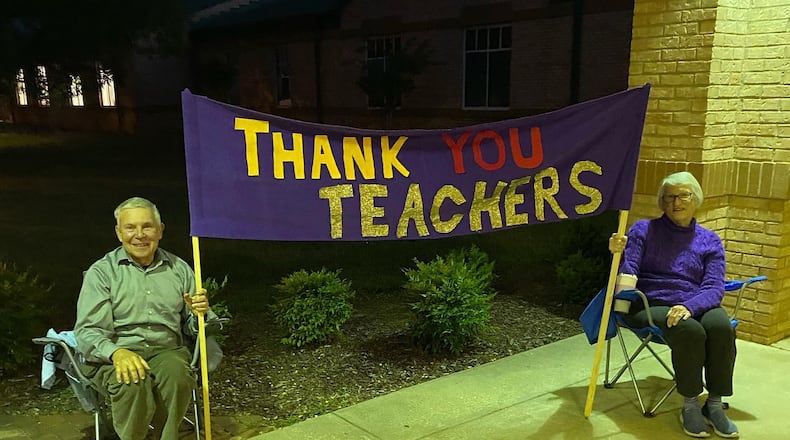David T. Marshall is an associate professor of educational research at Auburn University. Tim Pressley is an associate professor of psychology at Christopher Newport University. They co-authored the new book “Lessons of the Pandemic: Disruption, Innovation, and What Schools Need to Move Forward.”
In this guest column, Marshall and Pressley ask us to stop for a minute to thank teachers for the work they did during the height of the COVID-19 pandemic.
Four years have passed since the COVID-19 pandemic disrupted our lives and shut most things down. Although most aspects of our lives have returned to normal, schools are still managing the aftermath of the pandemic. The job of being a teacher was a challenging one prior to the pandemic — one that only became more challenging during the crisis. We believe that the time has come to formally thank our teachers for the work they did during our moment of crisis.
During the pandemic, we were grateful for our doctors and nurses. In New York, residents banged pots and pans from their balconies each night as a sign of gratitude for the city’s front-line workers. For a short time, it seemed that teachers were also the recipients of this gratitude as parents began to realize the Herculean task they took on each day educating their children.
This gratitude soon faded as controversies erupted over when to reopen schools for in-person learning. Additional debates ensued over the masks and curriculum. Some even suggested teachers were lazy for not wanting to return to the classroom.
Although we have argued elsewhere that prolonged school closures were a mistake, we generally believe pinning this blame on teachers is misguided. Regardless of the learning modality schools were using (i.e., in-person, remote, or a mix of the two), the task of being a teacher was much more difficult.
Teachers who taught in districts where schools reopened often had to do so while simultaneously teaching students who “attended” online. Teachers who were asked to teach online had to reimagine their lesson plans for an environment different than what they were used to. In short, teaching during this time was a tough job.
In the aftermath of the crisis, students continued to suffer socially, emotionally and academically, and teachers and schools have been tasked with making up lost ground in the years since.
In research we conducted for our recent book, we conducted focus groups with teachers and asked them what they needed to be successful in their jobs. What they shared with us was not surprising. Teachers need support from their school leaders, colleagues and parents. They need the resources to do their work. And they need to have enough time to do it.
Much has been made about teacher shortages due to a growing number of teachers leaving the classroom. However, research suggests that there are things that school leaders can do to retain them — and many of these things don’t require additional resources.
Credit: Contributed
Credit: Contributed
Even small gestures from a principal can make a tremendous difference for teachers. A second grade teacher from Florida with whom we spoke told us that her principal was the reason she remained in the profession. She described a school leader who checked in on her and did little things like cover her class for a few minutes when she needed. She shared, “I chose to stay because of her relationship with me, her desire to care for me not just as an employee, but as a person.”
The most disheartening thing we heard from teachers when we asked them what they needed to be successful was, “Thanks for asking. No one ever asks us that.” As we mark four years since schools first closed their doors, we should be the ones thanking teachers.
The Latest
Featured



